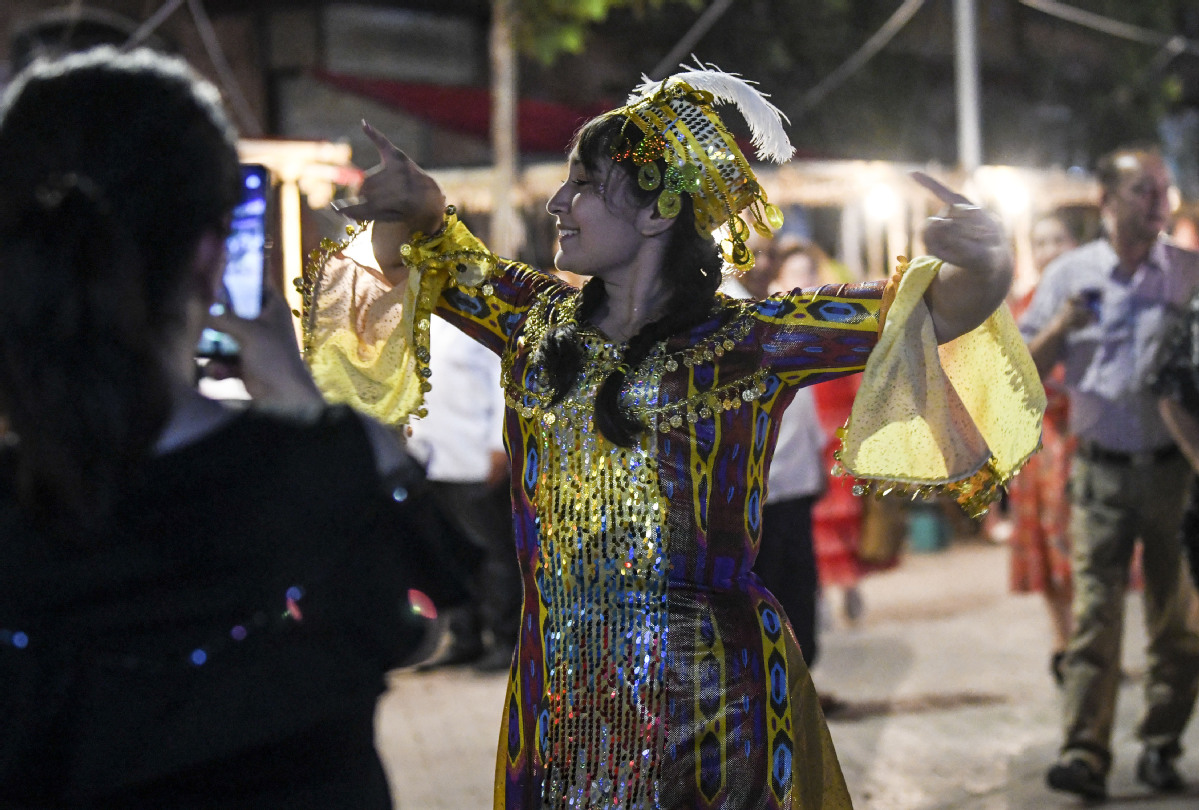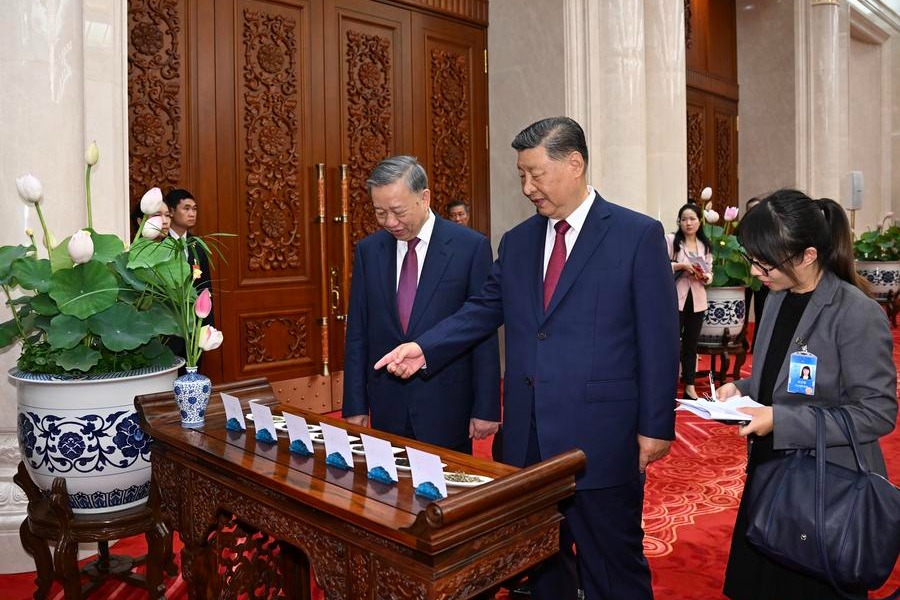Coming out of traditional mold and giving life a new beginning


Offering support
Employment-based poverty reduction measures include the promotion of tailored industries and relocation of impoverished villagers.
To better understand the situation and encourage employment at the grassroots, officials and employees from the regional government, public institutions and State-owned enterprises have been dispatched to the impoverished and remote areas in southern Xinjiang.
In June 2017, an assistance team from the Urumqi petrochemical company headed to Shule county. It was then that Gulbahar heard about its recruitment of staff in the regional capital.
"We have offered positions in the guesthouse or logistics department of our company. We have three-year contracts with more than 2,000 yuan in monthly pay, with contract renewals," said Zhang Yingjun, deputy head of the human resource department of the company.
Gulbahar said that while the job at the company was attractive and there was support from the team, the hardest part was persuading her "stubborn husband".
For many impoverished households in the south, men are the traditional breadwinners while women are expected to be solely mothers and wives.
"Male members of my family are quite conservative in their thinking and many women in my hometown are conditioned into doing housework. It is hard for them to imagine a woman with a paying job outside the home," Gulbahar said.
"He did not want me to work in Urumqi, he said the city is too far. He asked, 'how can a married woman leave her husband home to work outside?'," said Gulbahar, whose family lived more than 1,400 km from the regional capital.
Gulbahar said she could never bring herself to ask her husband for money. They barely made ends meet from farming.
When Gulbahar suggested getting work to help support the family, her husband would again point to the traditional role of a woman, to help the husband at home, she said.
"I understood his feelings. Maybe he wanted us to stay together, but I did not want my family to live in poverty. I need to work. So when the company came to my village, I turned to them," she said.
Gulbahar's parents were the first people to be convinced of her decision to work-company staff and local cadres came to their house, vouched for the job and presented samples of the contract and related certification. Accompanied by her parents, Gulbahar told her husband about her decision.
"This time, my parents endorsed my decision and persuaded my husband. He did not refuse directly. Without saying 'yes' or 'no', he finally acquiesced," Gulbahar said.
In Urumqi, Gulbahar's company provided staff with meals and accommodation so she sent much of her wages home.
Gulbahar's colleagues included about 100 people from impoverished villages in Shule and most of them were women. Eighty-three of the first 90 employees the company recruited in 2017, including Gulbahar, renewed contracts with the company this year.
When Gulbahar worked for the company's guesthouse, she also found out that the company was recruiting security guards and told her husband.
"He was surprised by the salary and working conditions, and more importantly, I think he realized something after receiving the money I sent to him every month. So in 2019, he came to Urumqi to work in our company," Gulbahar said.
"I hope we can save more money and buy an apartment in Urumqi. If we have children in the future, I want them to grow up and go to school in the city. I will do everything I can for my family to have a better life," Gulbahar said.























